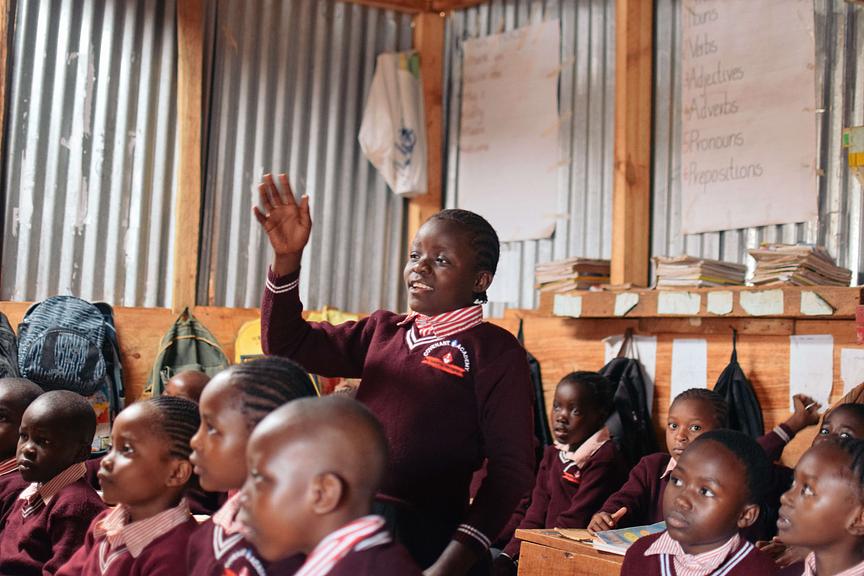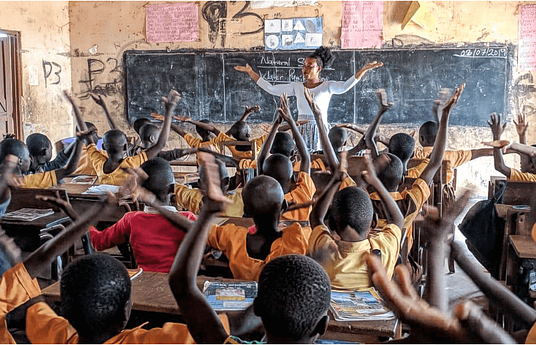What we do?
Dignitas uses an innovative training and coaching approach to empower schools and educators to transform students’ opportunities with high quality teaching and learning.
Dignitas delivers training and coaching through 4 main components: Leadership Academies, Professional Development Workshops, Coaching, and Professional Learning Communities.
Leadership Academies are intensive classroom-based training summits that introduce ideas and concepts that empower educators to be inspiring leaders and excellent teachers. The aim is to shift beliefs, attitudes and values so that educators see the potential in their schools and students. The Academies lay the foundation for educators to take charge of improving their schools and catalyzes school improvement efforts.
Professional Development Workshops provide targeted development opportunities for both school leaders and teachers that build on the foundation created in the Academies with intense modelling and practice.
Coaching provides personalized, in-class mentoring to the fellows. Coaching focuses on practical application of skills and concepts learned in training to ensure they are implemented in the classroom. Individualized coaching also ensures that each teacher receives support specific to his or her needs and abilities.
Professional Learning Communities help educators to routinize sustainable reflective practice towards whole school improvement.
Dignitas tracks school leader and teacher competencies, and typically observes significant growth over the course of a school partnership.
Why we do it?
According to the Kenya Education Sector Report, classrooms are characterized by individual seat-work and dominated by teacher-centered activities. The report further states that only 39% of teachers can adequately prepare lesson plans, only 33% can assess student ability, and only 29% can evaluate student progress factors which translate to the ability of learners to acquire and master skills. Moreover, learners are rarely encouraged to participate in lessons, question new material, expand their reasoning, and collaborate with peers, skills which are central to obtaining the 21st Century skills and competencies needed to succeed in a global world. These challenges are magnified for learners from low economic backgrounds, urban informal settlements, and Arid and Semi-Arid Lands (ASAL).
In the 2018 World Development Report, the World Bank declared a global learning crisis. This crisis resonates with data from Kenya where, despite significant progress in the education sector, including a net enrolment rate of 91%, only 56% of seven year olds can do literacy and numeracy at the expected level (Uwezo, 2015). The 2018 World Development Report goes on to identify four factors that prevent student learning from happening, including “School Management that doesn’t affect teaching and learning.”
School Management that doesn’t affect teaching and learning undermines schooling quality whereas equipped and empowered school leadership improves teaching quality and ensures effective use of resources. Effective School Leaders help teachers solve problems, provide instructional advice, and set goals that prioritize learning.
In 2017, comparison using pre- and post- lesson assessments found that students in Dignitas classrooms showed a 44% increase in academic growth during the course of a lesson, whilst students in non-Dignitas classrooms experienced a 15% increase.
In 2018, impact data showed that Dignitas’ School Leaders gained significant % points (up to 30) across seven domains, including self-efficacy, pedagogy, and leadership, with 81% of School Leaders becoming proficient across the domains in the course of partnership with Dignitas.



